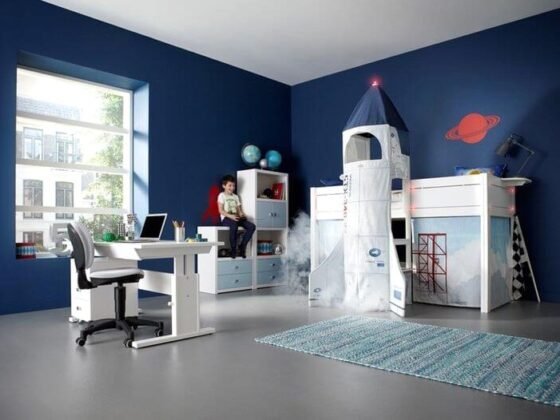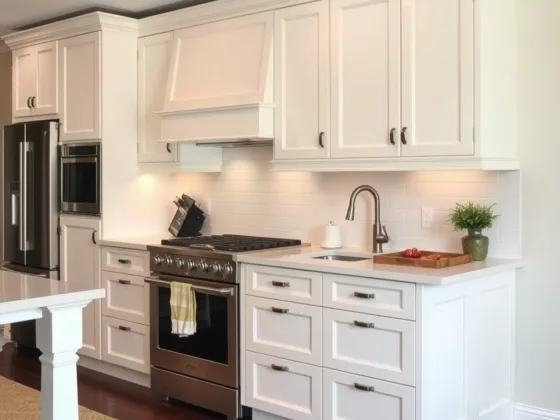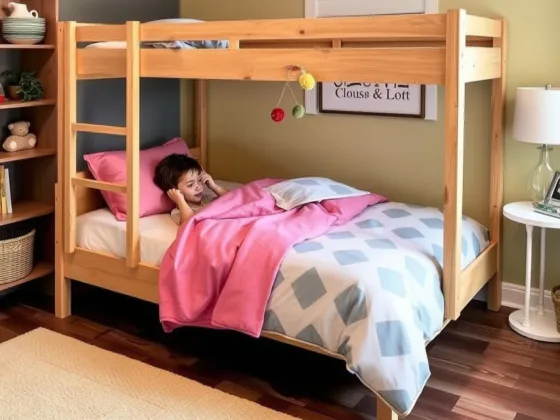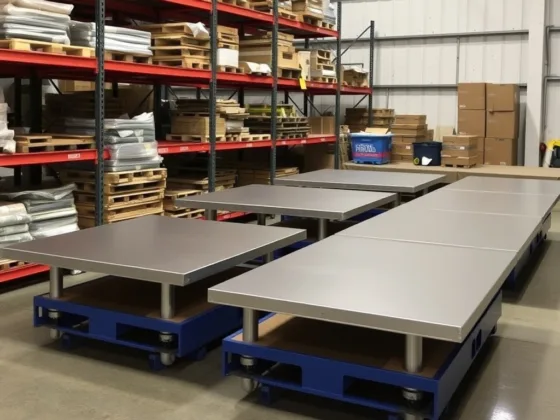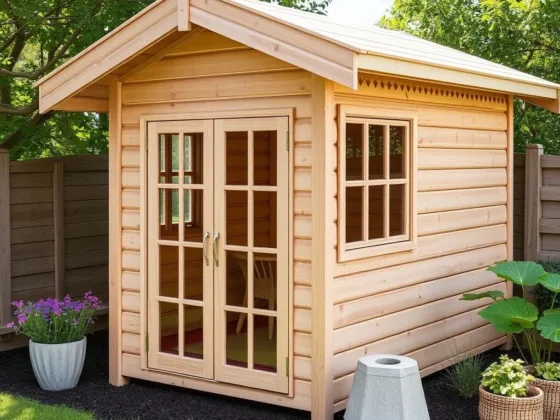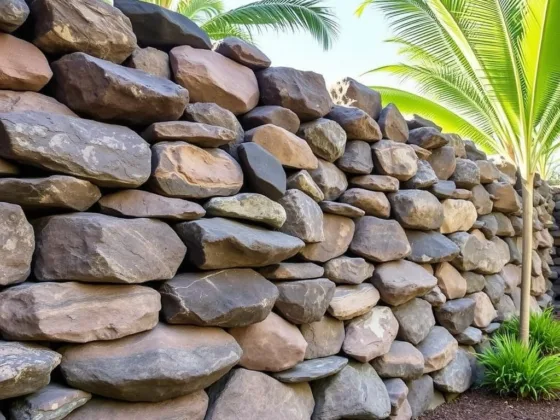Table of Contents Show
Are you sick of suffering through the hot summer months and taking every chance you get to go swimming in a neighbor’s pool? Well, it may be time to invest in your own.
A swimming pool completely transforms your backyard activities. Entertaining guests, hosting birthday parties, and lounging around will never be the same.

Fiberglass vs Concrete Pools
However, before you decide to move forward with the installation, you’ll need to decide between fiberglass vs concrete pool. These are two very different styles, and each has pros and cons you need to consider.
Let’s breakdown the qualities of each.
Read Also:
Fiberglass Pools
There’s a good chance you aren’t familiar with fiberglass pools. This isn’t your traditional swimming pool design.
Fiberglass pools are pre-assembled before they arrive at your home. They’re made of a non-porous, fiberglass surface, which means they feel a little different on your feet.
If you end up choosing this style for your backyard, you’ll need to work with a company that specializes in fibreglass pools to ensure the installation process goes smoothly.
Let’s go over some of the major pros and cons of fiberglass pools.
Easy Installation
One of the biggest advantages of investing in a fiberglass pool is the installation process. It’s much easier and quicker than concrete.
Because fiberglass models get manufactured prior to installation, your backyard won’t be in disarray for months. In fact, the pool won’t arrive until it’s time to install it in the ground.
The entire process involves digging a hole to the shape of the pool. Then, either concrete or sand will go on the bottom of the hole to act as the foundation. Finally, the fiberglass pool gets installed in the hole.
Companies that provide fiberglass pools install the same design over and over, which means they’ve streamlined the process. This results in less intrusion in your life.
Low Maintenance
Any swimming pool comes with a certain amount of maintenance to keep it clean. However, fiberglass requires much less of your time.
The smooth surface of fiberglass pools makes it harder for algae and other bacteria to grow. This means you’ll spend less time scrubbing the sides and vacuuming the bottom.
It also means you won’t have to continuously treat your pool with chemicals to maintain a good pH balance. You’ll need to do it every once in a while, but it won’t take too long.
Better Heat Retention
If you plan on installing a pool heater so you can go swimming in cooler weather, a fiberglass pool is perfect for you.
The thin, fiberglass material doesn’t absorb heat from the water. This results in a pool that heats up faster and retains heat longer.
With a concrete pool, you have to use a lot more energy to heat the water. The heater must also continue working to maintain a warm temperature.
Fewer Design Options
One of the biggest cons associated with a fiberglass pool is the limitation on the design. This is a major deciding factor for many people.
Because these pools come pre-made, you’ll have to choose from a selection of design options. You don’t have custom design control as you do with concrete.
This is a problem if you have backyard features such as a deck, gardens, or trees you need to work around. There’s no way to make small modifications to a fiberglass design.
Less Durable
Another disadvantage of fiberglass pools is they don’t hold up as well as concrete and are more prone to damage. This is due to the construction and materials used.
Think of a fiberglass pool as a shell that sits on top of the sand or concrete foundation. There’s very little construction reinforcement involved in the installation process.
Unfortunately, these pools can crack if the ground shifts. This can lead to leaks and the need to reapply a gel finish that coats the surface of the pool.
If your home has foundation issues, you should take this into account when making your decision. You may have unstable soil that could lead to pool cracks.
Smaller Dimensions
If you’re planning on swimming laps in your new pool, fiberglass isn’t the best option. Although fiberglass pools come in different shapes, their sizes are limited. This is due to the fact that they’re manufactured off-site and must get transported on a truck.
These pools are also much shallower. Diving boards and slides are out of the question and your family will need to keep horseplay to a minimum.
Concrete Pools
Let’s now turn our attention to concrete pools. This style is more traditional and involves creating a concrete foundation that contains the pool.
When you have a concrete pool installed, a hole gets dug in the shape of the pool. Then, a metal frame goes down along the bottom and sides. This helps support the concrete so it doesn’t move if the earth shifts.
If you’re considering a concrete pool but aren’t sure if you’re up for the investment, keep reading. We’re going over some primary pros and cons.
Design Flexibility
Custom design is of the biggest benefits of going with concrete over fiberglass. With a concrete pool, you have much more control over the size and shape.
This control is due to the fact that a concrete pool gets built from the bottom, up. There aren’t prefabricated pieces that have to fit into your yard. Instead, you have the freedom of designing a pool around the other elements of your backyard.
You can also choose different colors and textures for the surface. This allows for a lot more creativity when planning for the look and feel of your new pool.
Deeper
Earlier, we mentioned that fiberglass pools have limitations with regard to size and depth. This isn’t the case with concrete pools. You can make them as deep as you wish.
If you know your kids will want a diving board, concrete is a must. You can easily design one with a large deep end that facilitates diving or a slide.
It’s important to understand that the deeper and more elaborate you design your pool, the more expensive it will be to build. However, if you want something that provides more options for activities, concrete is the best choice.
Added Durability
The construction and materials that go into the installation of concrete pools result in a much more durable product than fiberglass. If maintained properly, you can expect yours to hold up for decades.
This durability is due to the foundation created while building the pool. The layer of concrete is thick and it’s sealed to increase its longevity.
While there’s still a possibility of cracking due to the ground shifting, it’s much less likely than with a fiberglass pool. You’ll have peace of mind your investment will hold up for years.
More Expensive
One of the biggest downsides of concrete pools is the cost. The national average is $60,000, but you could end up spending more depending on the design.
In addition to the initial cost, you’ll have to spend money on maintenance jobs and upkeep. Concrete pools require acid washing every five years or so. You’ll also need more equipment and materials for at-home maintenance.
If you install a large pool, your energy bills will go up significantly due to pump requirements and lighting. These expenses are much smaller with fiberglass.
Higher Maintenance
The porous nature of concrete pools means algae and bacteria will grow and spread. In order to maintain this, you’ll need to clean and treat your pool regularly.
Cleaning jobs involve skimming the surface, vacuuming the bottom, and scrubbing the sides. If you don’t want to do this yourself, you’ll have to pay a pool technician on a regular basis.
You’ll also need to test the pH balance once a week. If your levels are off, you’ll have to shock the water to ensure it’s safe for swimmers.
Longer Installation Process
If you decide to install a concrete pool, expect the process to take several months. In addition, your backyard is going to get torn apart.
The installation process for concrete pools is more involved than fiberglass. If you have an elaborate design with many steps or inclines, the process will take longer.
A pool contractor will need to draw up schematics for your custom design. After digging the hole, they’ll have to mix the concrete at your home.
Once the concrete is in place, it must dry thoroughly. The builders will then smooth and treat the concrete to ensure the texture is correct.
Fiberglass vs Concrete Pool: Which Will It Be?
The most important thing to keep in mind when putting in a pool is how much better your quality of life will be. No more trips to the neighbor’s house or public pool to cool off.
When it comes to fiberglass vs concrete pool, there’s no right or wrong answer. It all depends on what you’re looking for and how much you’re willing to spend.
Use the list of pros and cons discussed above when choosing the best pool for your family.
For more information on exterior designing for your home, check out our blog today.
